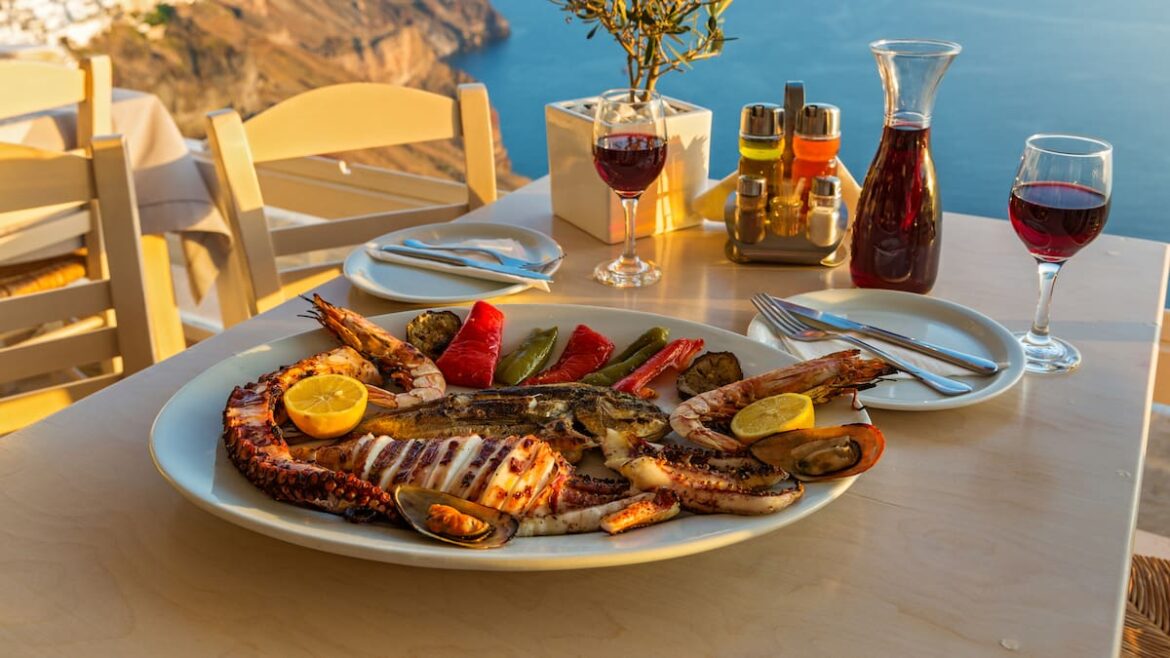 By Jennifer Bowden
By Jennifer Bowden
Nutrition writer·New Zealand Listener·
20 Aug, 2025 06:00 PM5 mins to read
Subscribe to listenAccess to Herald Premium articles require a Premium subscription. Subscribe now to listen.Subscribe now
SaveShare this article
Reminder, this is a Premium article and requires a subscription to read.
Copy LinkEmailFacebookTwitter/XLinkedInReddit
The Mediterranean diet originates from countries like Greece, Italy, Spain and Portugal where there is a low saturated fat intake. Photo / Getty Images
Mention the word “diet” and many people think of calorie counting, carb bans and flavourless food. But the Mediterranean diet is something quite different — it’s more a way of eating and living than a prescriptive meal plan, and it’s earned its reputation not through hype, but through
decades of solid science.
While it’s inspired by the traditional food culture of countries around the Mediterranean Sea, particularly Greece and southern Italy in the 1960s, it’s not about recreating someone else’s cuisine exactly. It’s about adopting key principles that can translate to a wide range of food cultures, including our own here in New Zealand.
The Mediterranean diet is one of the most studied and recommended dietary patterns in the world. And top of the list of its proven benefits is cardiovascular health. Key to the recognition of the Mediterranean diet is a major Spanish trial known as Predimed (Prevention with Mediterranean Diet), which found that people at high risk of heart disease who followed a Mediterranean diet (supplemented with either extra virgin olive oil or nuts) had a 30% reduction in heart attacks, strokes or cardiovascular death compared with those on a low-fat diet. The beneficial health outcomes were so significant that the study was stopped early on ethical grounds: it was considered unethical to keep the control group on the lower-fat diet when the Mediterranean diet was producing such superior results.
The diet’s cardiovascular benefits stem from its ability to lower LDL cholesterol, blood pressure and markers of inflammation, while enhancing overall vascular function. And the benefits are so consistent that they’ve been observed in countries like the US and Australia, where people adopt a Mediterranean-style pattern.
Plus, the health benefits of the Mediterranean diet extend beyond the cardiovascular system. Research has also linked the Mediterranean diet to a lower risk of developing type 2 diabetes, better blood-sugar control in those with diabetes, improved cognitive function with age and a reduced risk of some cancers. Unsurprisingly, there is also emerging evidence of improved longevity in people who closely adhere to the diet.
So, what exactly did traditional Mediterranean communities eat? The traditional Mediterranean diet was rich in:
Vegetables, fruits, legumes and wholegrains: These formed the bulk of daily meals, often at every meal. In Crete, men traditionally consumed 500g each of vegetables and fruit daily — roughly five cups worth (see note below).Healthy fats: Primarily from extra virgin olive oil, nuts and seeds. Butter and processed spreads were rarely used.Seafood and poultry: Eaten in moderate amounts, often two or three times a week.Red meat: Kept to a minimum — a small portion just once or twice a week, often as a flavouring rather than the main event.Dairy: Consumed in small amounts, often as yoghurt or cheese.Wine: consumed modestly and with meals by some, but not essential
Equally important was the traditional Mediterranean lifestyle, characterised by plenty of physical activity, home-cooked meals and regular social gatherings around food.
AdvertisementAdvertise with NZME.
We can recreate the essence of the Mediterranean diet for New Zealand tables without needing to start growing olives or baking sourdough. Here are some easy ways to embrace the Mediterranean diet locally:
Use extra virgin olive oil as your main added fat.Enjoy a variety of vegetables with every meal – aim for five or more servings a day.Include legumes such as chickpeas, lentils, black beans, kidney beans or cannellini beans in soups, salads or mains, two or three times a week. You can use convenient tinned options or buy dried beans in bulk for a more cost-effective option.Eat three or more servings of fruit each day – a traditional Cretan diet contained around 500g of fruit daily.Snack on a small handful of mixed nuts daily (30g).Choose wholegrain breads, cereals, rice and pasta.Eat fish, especially oily fish, two or more times per week.Cut back on red meat – think of it as a flavouring rather than the centrepiece.Choose low-fat dairy options in moderation.Drink alcohol only if it’s part of your current lifestyle – no need to start.
The Mediterranean diet isn’t a strict formula, but a flexible, flavourful approach to eating that supports long-term health — especially for your heart. And that’s something worth making space for on your plate.
Note: The traditional Cretan man’s diet included a midday meal of eggplant, mushrooms, crisp vegetables and bread dipped in olive oil. Lamb and chicken were served once a week each, while fresh fish was served twice a week. Other meals were hot dishes of legumes “seasoned” with meats and condiments, followed by salad, then by dates, Turkish sweets, nuts or fresh fruits. A “sharp local” wine completed the meal.
Source: Seven Countries Study
As well as Jennifer Bowden’s columns in the NZ Listener, listener.co.nz subscribers can access her fortnightly myth-buster column which explores food and nutrition myths.
SaveShare this article
Reminder, this is a Premium article and requires a subscription to read.
Copy LinkEmailFacebookTwitter/XLinkedInReddit
 By Jennifer Bowden
By Jennifer Bowden

Dining and Cooking